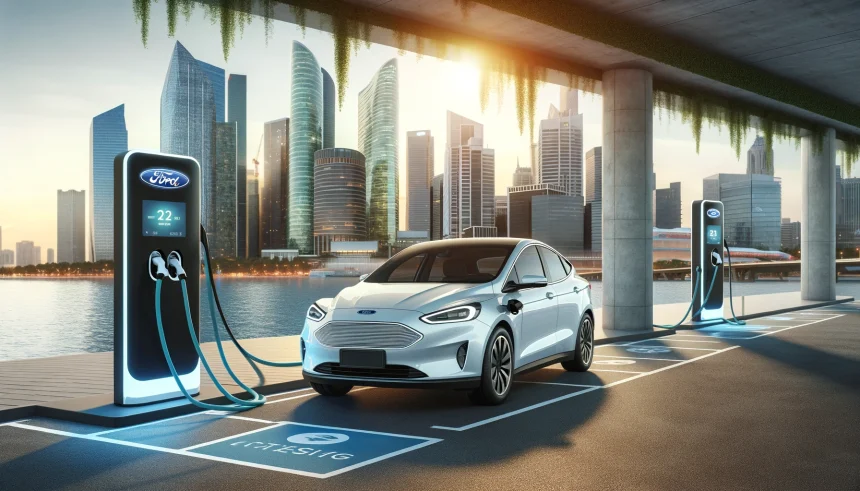Ford’s leadership is reassessing the future of its F-150 Lightning, an electric pickup that has drawn attention as the top-selling model in its category last quarter. Despite outpacing Tesla’s Cybertruck in U.S. sales, the F-150 Lightning faces uncertain prospects as rising production costs and waning consumer interest lead to tough conversations within the company. The industry is watching closely, as the potential discontinuation of this model would signal a significant pivot for Ford and could prompt other automakers to reconsider their electric vehicle (EV) plans. Buyers are also left wondering what this shift could mean for available EV options and overall direction in the market.
Ford’s previous launches of the F-150 Lightning were celebrated as bold steps into the EV sector, with the company being recognized as a frontrunner among legacy automakers attempting to electrify their fleets. The removal of the $7,500 federal tax incentive marked a turning point, leading to questions about the model’s affordability and sustained appeal. Data from earlier rollouts suggested a brisker pace of initial reservations, but ongoing challenges with profit margins—and reports of significant losses per vehicle—paint a more complicated picture than optimistic forecasts had suggested. Compared to those earlier signals of aggressive expansion, Ford’s reconsideration of its EV strategy stands in contrast to expectations set only a few years ago.
What Has Led Ford to Rethink the F-150 Lightning?
Sales data indicates that, despite its leadership among electric trucks, the F-150 Lightning has struggled to match traditional F-Series models in overall unit movement and profitability. While praised for its features and mirroring the brand’s hallmark combustion engine pickups, the Lightning’s current price points and mounting development costs have proven difficult to sustain. According to employee comments, there is skepticism about the business case for continuing production under current demand levels.
How Are Finances Affecting Ford’s Approach to Electric Vehicles?
Reports from within Ford reveal substantial financial losses on each F-150 Lightning produced, ranging from $100,000 to over $130,000 per unit based on assessments from the previous year. Ford’s quarterly earnings show diminishing enthusiasm for aggressive EV expansion, reinforced by the absence of the tax credit and consumer hesitance. The company has acknowledged weighing its options, as one insider noted,
“the demand is just not there.”
Could This Decision Affect the Wider Electric Pickup Market?
A final decision has yet to be officially announced, but rumblings within Ford have gained traction, reflecting broader uncertainty about the pace and profitability of the transition to electric trucks. With the F-150 Lightning setting early benchmarks in the sector, any significant change to its status could reshape consumer expectations and competitive dynamics among other automakers. Ford representatives emphasized awareness of market realities, saying,
“We continually review our portfolio to ensure it meets customer demand and our business objectives.”
The trajectory of the F-150 Lightning’s development offers lessons for stakeholders watching the EV landscape. Despite early successes, shifting tax credit policies, scaling challenges, and evolving consumer attitudes demonstrate the volatility in EV adoption, especially in segments historically dominated by traditional vehicles. For consumers, the viability of electric pickups hinges on ongoing incentives, technical advancements, and alignment between product offerings and buyer needs. Automakers may need to balance ambition with measured investment in EV platforms, using near-term market signals to shape their longer-term strategies. Ultimately, the outcome for the F-150 Lightning could inform how quickly the industry adapts to changing technological and economic realities, with implications extending well beyond Ford’s immediate product lines.
- Ford considers ending F-150 Lightning due to lower-than-expected demand.
- Financial reports indicate substantial losses per EV truck sold.
- Industry shifts may follow Ford’s final decision on the Lightning.










